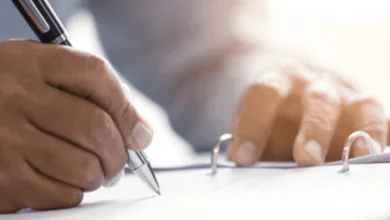
Facing an arrest in Dallas can be overwhelming, but knowing what steps to take can help. This guide gives you practical steps to handle an arrest. First, stay calm. Panicking can make things worse. Next, remember that you have rights. You don’t have to answer questions without a lawyer. Immediately, you should ask for a lawyer. If you don’t have one, the court will provide one. The Gallian Firm, known for its legal expertise, can guide you through the process. Stay respectful when speaking to officers. It helps to avoid any additional charges. Memorize key details about the arrest. This information will be useful later. Above all, protect your rights. Keep this guide in mind to navigate through this challenging situation. This knowledge empowers you to face the situation more confidently. Remember, understanding these steps can make a significant difference in your experience and outcome.
Understand Your Rights
The Miranda Rights protect you during an arrest. They include the right to remain silent and the right to an attorney. Exercising these rights is crucial. Silence cannot be used against you. Instead, it protects you from self-incrimination. For more details on your rights, you can visit the U.S. Courts website.
Steps to Take During and After an Arrest
Follow these steps if you’re arrested:
- Stay Calm: Keep your emotions in check.
- Ask for a Lawyer: Do not answer questions without legal help.
- Do Not Resist: Avoid escalating the situation.
- Note Details: Remember officer names and badge numbers.
- Contact Family or Friends: Inform someone you trust.
See also: Understanding the Role of a Social Security Lawyer: Your Guide to Navigating Disability Claims
Contacting Legal Assistance
Getting legal help is important. If you cannot afford a lawyer, a public defender will be provided. You can also reach out to legal firms. The Texas Law Help offers resources for finding legal aid. Understanding the legal process helps you make informed decisions.
Expectations During the Legal Process
The legal process can be confusing. Here’s a simple table to understand the stages:
| Stage | Description |
| Arraignment | First court appearance where charges are read. |
| Bail Hearing | Determines if bail is set and the amount. |
| Pre-Trial | Preparation phase before the trial. |
| Trial | Formal examination of evidence in court. |
| Sentencing | Judge decides the punishment if found guilty. |
Communication with Legal Representation
Communication with your lawyer should be open and honest. Provide all details surrounding the arrest. Transparency helps your lawyer build a strong defense. Regular contact ensures you stay updated on your case.
Impact on Future Opportunities
An arrest can affect job applications and housing opportunities. Understand that these challenges are common. Support networks and legal assistance can help you overcome these barriers. Prioritize personal growth and future planning.
Conclusion
Facing an arrest is stressful, but preparation makes a difference. Understanding your rights and knowing the steps to take can turn a difficult situation into a manageable one. Armed with this knowledge, you can navigate the legal system with more confidence. Remember, you are not alone. Reach out for legal help and use the resources available to protect your rights and future.




